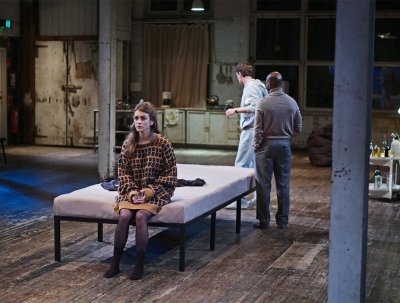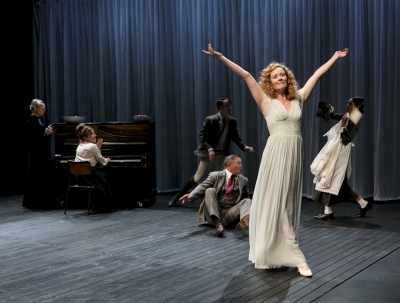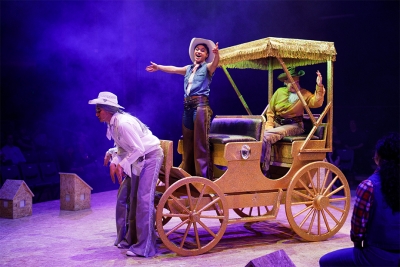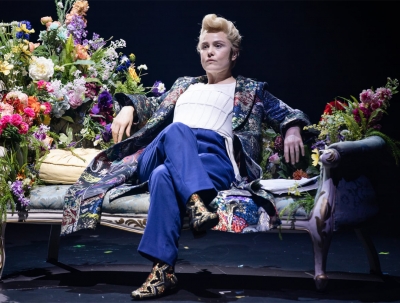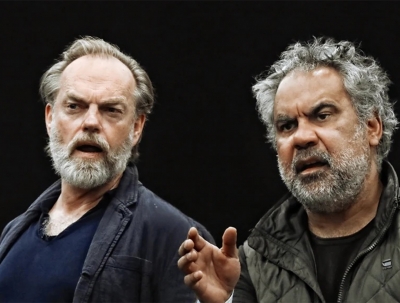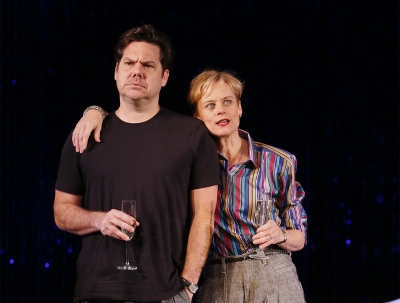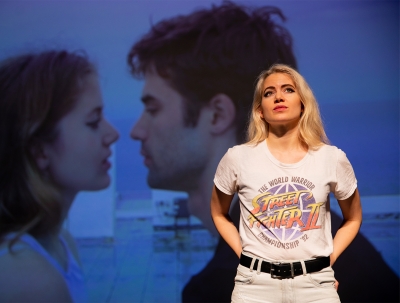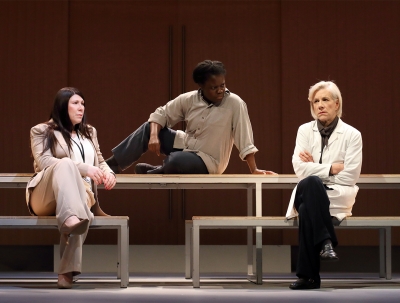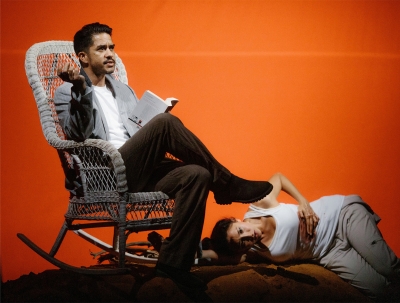Theatre
Actor Mark Diaco spent ten years trying to secure the rights to Lanford Wilson’s 1987 play Burn This. You can see why. This is theatre that feels good to perform: full of drama, wrenched love, long monologues, and floods of tears. The characters are meaty, the dialogue turbulent, dizzying, and technically complex. These are show-piece roles. They exist, though, in a script whose latent gender politics are at risk of overshadowing the story.
... (read more)My Brilliant Career may not be Belvoir’s first post-pandemic show, but it’s surely the most joyous. Hot on the heels of a government exemption raising audience numbers to seventy-five per cent capacity, the mood on opening night was exuberant – almost as exuberant as Sybylla Melvyn, My Brilliant Career’s impossible yet impossible-not-to-love protagonist.
... (read more)Musicals remind me of watching midday movies with my grandmother in the days of black-and-white television. Years later, the revelation that many of these films were actually in colour seemed antithetical to the moral certainties they depicted.
... (read more)The advance publicity for Kip Williams’s production of Oscar Wilde’s novella The Picture of Dorian Gray (1890) makes much of Wilde’s aphorism ‘The only way of get rid of a temptation is to yield to it.’ In the past, Williams has found the fashionable mix of video and live performance pioneered by the Belgian director Ivo van Hove seductive. He has used it brilliantly in his production of Tennessee Williams’s Suddenly Last Summer and less so in Bertolt Brecht’s The Resistible Rise of Arturo Ui. But with his assault on Wilde’s famous work, he has yielded to it with a vengeance.
... (read more)Theatre emerged from ritual and the present circumstances have introduced new rites of passage for those who take part in the ceremony. Donning your mask, you perform the cleansing of hands, stand at attention as your temperature is taken, and enter an eerily under-populated lobby in which other masked figures attempt to keep a prescribed distance as they head for the inner sanctum. Once inside it is easy to find your allotted place, one of the few seats not cordoned off. Looking around at the handful of other attendees seemingly randomly scattered around the auditorium, it feels more like a final dress rehearsal than an actual performance. Welcome to theatre-going in the Covid-19 era.
... (read more)In the last decade there has been a welcome shift in our theatre ecology, with more main-stage companies keen to revisit classic Australian plays. Where once a new work by a local writer would have its run and then, no matter how acclaimed, disappear, rarely to be seen again outside of school and amateur productions, we are now being given another chance to experience some of these seminal plays, discovering not merely where we have come from as a country and as a culture but also, importantly, how we’ve changed.
... (read more)In 2000, Mary Beard, the English scholar and classicist, published an autobiographical essay entitled ‘On Rape’ in the London Review of Books. It blazes, not in intensity of tone, but as writing that refuses to tame itself to one palatable or containable narrative. The essay allows for a space wherein questions are asked and there aren’t always answers, at least not ones that make us complacent. Beard professes to not being ‘particularly traumatised by what happened’ to her younger self, admitting that this might be a result of the experience itself having morphed into different iterations as she retold it to both herself and others. These tellings subsequently become ‘interpretations of what went on, which coexist ̶ and compete ̶ with the account’ that she writes in the opening of the piece.
... (read more)No one would maintain that Schnitzler’s original text does not need cutting and shaping for an updated presentation of the issues he was concerned with back in 1912. (One of the drollest observations about Schnitzler’s style comes from Franz Kafka, who noted that ‘it is replete with the quavering hollowness of literary pretensions’, though he was speaking specifically of Schnitzler’s late works.) But a play like Professor Bernhardi is no more nor less overwritten than some of Shaw. Here, at every turn, Icke’s ‘re-imagining’ (and his direction) opts for crude juxtaposition, where Schnitzler’s outlining of the issues can accommodate both subtlety and directness, ambiguity and clarity. And Icke’s simplification is reflected in the performances of most of the actors
... (read more)A boarding house, late evening. Two elderly men pace fretfully, unable to settle. They are, we learn, waiting for their landlady to return home. She goes out rarely and tonight is later than usual. Should they play cards? No, says one of the men, I always lose. I’ll let you win, says the other. Then there’d be no point in playing, rejoinders the first.
... (read more)A play begins its conversation with an audience well before the house lights go down. Marketing images, PR blurbs, interviews – they all launch the process of introducing the work, of situating it in the world. By opening night, the audience is primed. A good production slips seamlessly from the abstract to the real, maintaining a coherent identity from marketing copy to stage. The Great Australian Play, now playing at Theatre Works, promises a scathing indictment of the emptiness at the heart of our national mythology. Instead, it delivers a meandering portrait of a writer who is embarrassed by his own source material.
... (read more)

